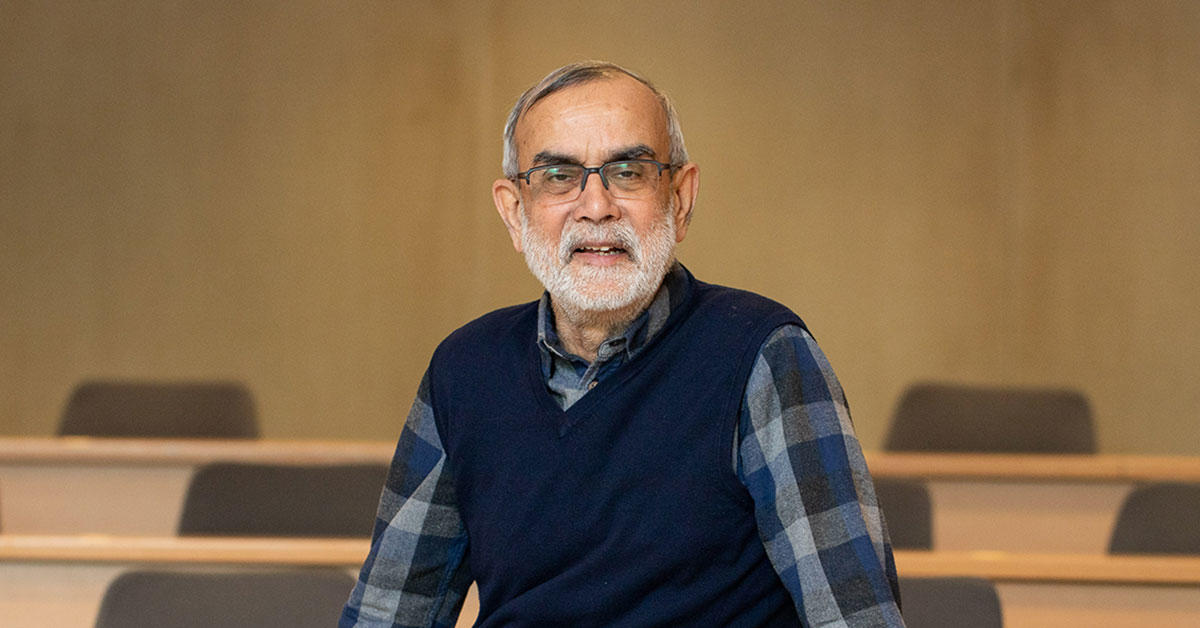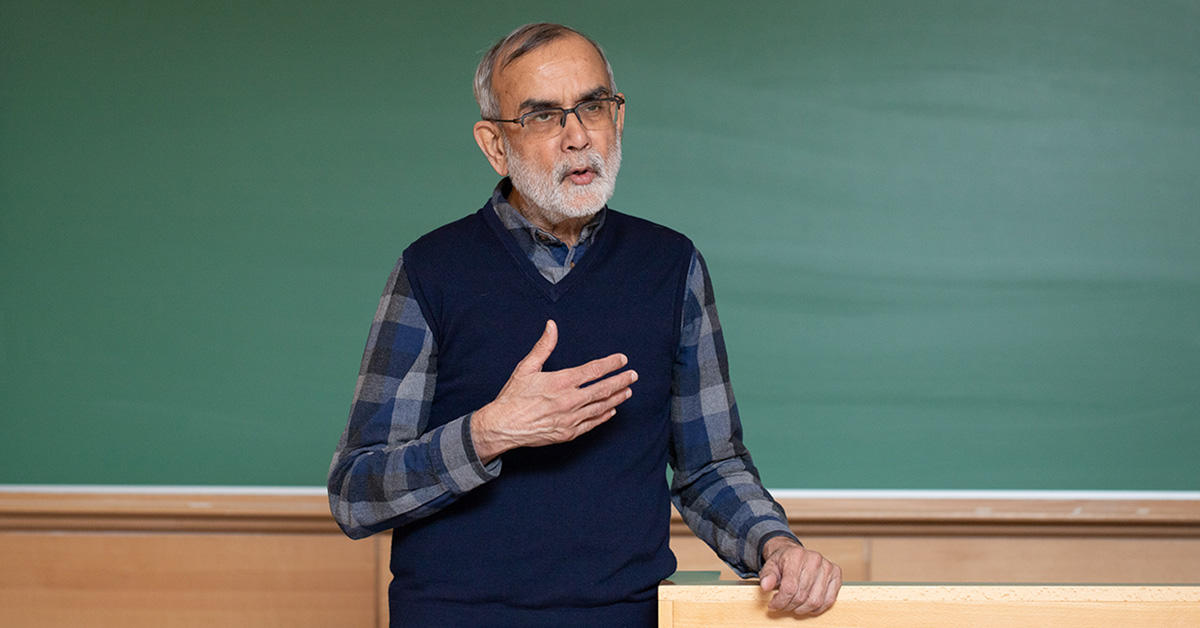
Through humanitarian action as well as teaching and research, Fayyaz Baqir always dreamed of making the world a better place. However, tensions in his home country, Pakistan, put his dreams at risk. Now a visiting professor at the University of Ottawa thanks to the Scholars at Risk (SAR) Network, Baqir is able to continue his important work while enjoying something many of us take for granted—freedom of expression.
Professor Baqir is first and foremost a community development practitioner. His career began with the Aga Khan Rural Support Program as well as the UN, and government organizations. For many years, he supported strategies aimed at reducing poverty and promoting local Pakistani economies. He was driven by the desire to improve quality of life for people living in poor and vulnerable communities.
It was this experience working first-hand with communities that made Baqir move into teaching, research and writing. He wanted to share what he had learned, while encouraging new ideas and innovation in the realm of participatory development.
“What I learned from the local communities is that they know better than us about the problems that they have and how to solve them,” says Baqir. “The best way to be of service is to listen and harvest knowledge from them in order to offer them the tools they need to achieve their goals.”
Academic freedom threatened
Baqir’s career reached a critical turning point in 1983 when his homeland fell under the rule of Gen. Muhammad Zia-ul-Haq.
“I had to leave Pakistan because the space for having dialogue was shrinking and the military regime was threatening the tradition of openness to others and dialogue that we had known in the country,” Baqir says. “Like many, I opposed the government’s idea of going to war, which caused me problems and endangered my freedom of speech.”
Fayyaz Baqir’s story is not an isolated case. In over a hundred countries worldwide, attacks on higher education are common. Academics and advocates are threatened, arrested, persecuted and harassed because of their research, teaching and public stances.
These attacks jeopardize the ability to think freely, ask questions, and express ideas—particularly when it comes to matters that are crucially important for scholarly advancement, public policy and democratic debate. The right to speak and hold progressive thoughts is censured under threat of reprisals.
“When we see that many academics have to fight for their academic freedom, sometimes risking their lives and those of their families, we realize just how precious what we have is,” says Jill Scott, provost and vice-president, academic. “We can welcome them and allow them to pursue their work and continue to contribute to our shared knowledge. In that sense, the Scholars at Risk program fits perfectly with our mission at the University of Ottawa.”
Finding a glimmer of hope
In May 2018, Professor Baqir joined the Faculty of Social Sciences’ School of International Development and Global Studies for a two-year stay as part of the SAR program.
“People who want to make a difference in the world are dreamers. They are idealists. I am lucky to be part of that community. But there are times in every society when the social and political climate does not allow open communication. SAR gives us a refuge, the opportunity to take a step back, continue our work and begin once more to make connections. It helps keep our dreams alive,” says Baqir.
Since arriving at the University of Ottawa, he has formed significant relationships with fellow researchers and with students. He has also published two works in two years, his most recent book in collaboration with Professors Sanni Yaya and Nipa Banerjee.
For Baqir, Canada is a crossroads for the academic community. It offers him a global platform to exchange ideas with a greater audience, one previously out of reach.
He shares this insight: “The job of scholars is to continue looking for ways to keep the dialogue going. Circumstances sometimes require that we wait for the right moment to communicate with the world. But we need to stay close to our truth.”
Support the Scholars at Risk program at the University of Ottawa
The University of Ottawa joined the SAR network in 2014, as managed by the Human Rights Research and Education Centre, and has since welcomed four researchers. By offering temporary academic positions in member universities and colleges, the program protects academics facing serious threats, so that their ideas are not lost and they can continue to work.
Help us promote human rights and academic freedom and give scholars at risk like Fayyaz Baqir the opportunity to pursue their research without fear of reprisal, censorship or violence. Give to support the Scholars at Risk Program Fund.
